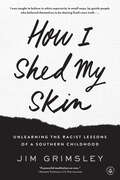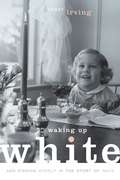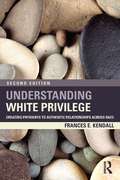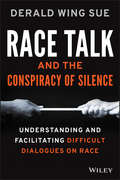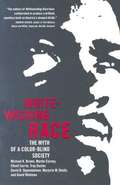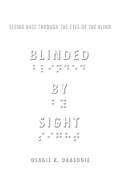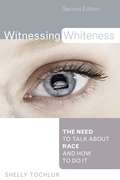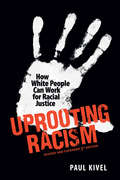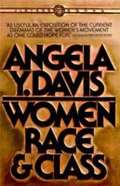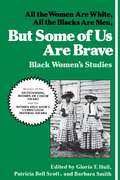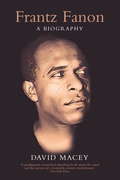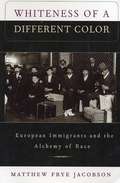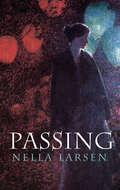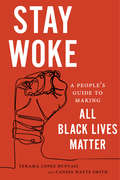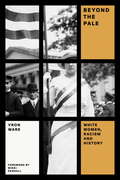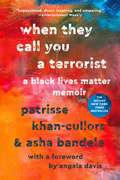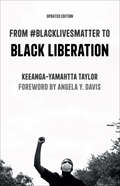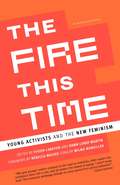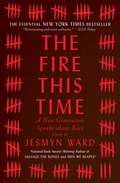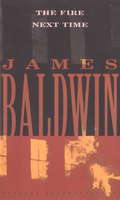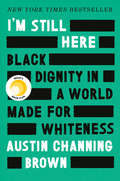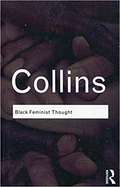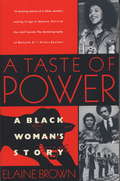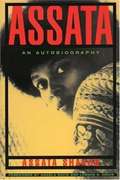Special Collections
Anti-Racism 101
- Table View
- List View
How I Shed My Skin
by Jim GrimsleyMore than sixty years ago, the Supreme Court ruled in Brown v. Board of Education that America’s schools could no longer be segregated by race. Critically acclaimed novelist Jim Grimsley was eleven years old in 1966 when federally mandated integration of schools went into effect in the state and the school in his small eastern North Carolina town was first integrated. Until then, blacks and whites didn’t sit next to one another in a public space or eat in the same restaurants, and they certainly didn’t go to school together. Going to one of the private schools that almost immediately sprang up was not an option for Jim: his family was too poor to pay tuition, and while they shared the community’s dismay over the mixing of the races, they had no choice but to be on the front lines of his school’s desegregation. What he did not realize until he began to meet these new students was just how deeply ingrained his own prejudices were and how those prejudices had developed in him despite the fact that prior to starting sixth grade, he had actually never known any black people. Now, more than forty years later, Grimsley looks back at that school and those times--remembering his own first real encounters with black children and their culture. The result is a narrative both true and deeply moving. Jim takes readers into those classrooms and onto the playing fields as, ever so tentatively, alliances were forged and friendships established. And looking back from today’s perspective, he examines how far we have really come.
Waking Up White, and Finding Myself in the Story of Race
by Debby IrvingWhite privilege. What is it, what does it mean? For twenty-five years, Debby Irving sensed inexplicable racial tensions in her personal and professional relationships. As a colleague and neighbor, she worried about offending people she dearly wanted to befriend. As an arts administrator, she didn't understand why her diversity efforts lacked traction. As a teacher, she found her best efforts to reach out to students and families of color left her wondering what she was missing. Then, in 2009, one "aha!" moment launched an adventure of discovery and insight that drastically shifted her worldview and upended her life plan. In Waking Up White, Irving tells her often cringe-worthy story with such openness that readers will turn every page rooting for her--and ultimately--for all of us.
Understanding White Privilege
by Frances KendallKnowingly and unknowingly we all grapple with race every day. Understanding White Privilege delves into the complex interplay between race, power, and privilege in both organizations and private life. It offers an unflinching look at how ignorance can perpetuate privilege, and offers practical and thoughtful insights into how people of all races can work to break this cycle. Based on thirty years of work in diversity and colleges, universities, and corporations, Frances Kendall candidly invites readers to think personally about how race — theirs and others’ — frames experiences and relationships, focusing squarely on white privilege and its implications for building authentic relationships across race. This much-anticipated revised edition includes two full new chapters, one on white women and another extending the discussion on race. It continues the important work of the first, deepening our knowledge of the recurring history on which cross-race relationships issues exist. Kendall’s book provides readers with a more meaningful understanding of white privilege and equips them with strategies for making personal and organizational changes.
Race Talk and the Conspiracy of Silence
by Derald Wing SueLearn to talk about race openly, honestly, and productively Most people avoid discussion of race-related topics because ofthe strong emotions and feelings of discomfort that inevitablyaccompany such conversations. Rather than endure the conflict ofracial realities, many people choose instead to avoid the topicaltogether, or remain silent when it is raised. Race Talk andthe Conspiracy of Silence: Understanding and Facilitating DifficultDialogues on Race puts an end to that dynamic by sharingstrategies for smoothing conversations about race in a productivemanner.A guide for facilitating and participating in difficultdialogues about race, author Derald Wing Sue - aninternationally recognized expert on multiculturalism, diversity,and microaggressions - explores the characteristics,dynamics, and meaning behind discussions about race as well as thehidden "ground rules" that inhibit honest and productive dialogue.Through emotional and visceral examples, this book explains whyconversations revolving around racial issues are so difficult, andprovides guidelines, techniques, and advice for navigating andleading honest and forthright discussions. Readers will develop astronger ability to build rapport with people unlike themselves,and discover how not talking about race impacts society as awhole.Overcome and make visible the fears associated with racetalkLearn practical ideas for talking openly about raceFacilitate and navigate discussion with expert strategyExamine the hidden rules that govern race talkUnderstand the benefits of successful conversationsDiscussions about race do not have to result in disastrousconsequences, and can in fact be highly beneficial to all partiesinvolved. It's important that people have the ability to converseopenly and honestly with their students, colleagues, children, andneighbors, and Race Talk provides the path for achievingthis goal.
Whitewashing Race
by Elliott Currie and Martin Carnoy and Michael K. Brown and Troy Duster and David B. OppenheimerWhite Americans, abetted by neo-conservative writers of all hues, generally believe that racial discrimination is a thing of the past and that any racial inequalities that undeniably persist-in wages, family income, access to housing or health care-can be attributed to African Americans cultural and individual failures. If the experience of most black Americans says otherwise, an explanation has been sorely lacking-or obscured by the passions the issue provokes. At long last offering a cool, clear, and informed perspective on the subject, this book brings together a team of highly respected sociologists, political scientists, economists, criminologists, and legal scholars to scrutinize the logic and evidence behind the widely held belief in a color-blind society-and to provide an alternative explanation for continued racial inequality in the United States. While not denying the economic advances of black Americans since the 1960s, "Whitewashing Race "draws on new and compelling research to demonstrate the persistence of racism and the effects of organized racial advantage across many institutions in American society-including the labor market, the welfare state, the criminal justice system, and schools and universities. Looking beyond the stalled debate over current antidiscrimination policies, the authors also put forth a fresh vision for achieving genuine racial equality of opportunity in a post-affirmative action world.
Blinded by Sight
by Osagie K. ObasogieColorblindness has become an integral part of the national conversation on race in America. Given the assumptions behind this influential metaphor—that being blind to race will lead to racial equality—it's curious that, until now, we have not considered if or how the blind "see" race. Most sighted people assume that the answer is obvious: they don't, and are therefore incapable of racial bias—an example that the sighted community should presumably follow.
In Blinded by Sight,Osagie K. Obasogie shares a startling observation made during discussions with people from all walks of life who have been blind since birth: even the blind aren't colorblind—blind people understand race visually, just like everyone else. Ask a blind person what race is, and they will more than likely refer to visual cues such as skin color. Obasogie finds that, because blind people think about race visually, they orient their lives around these understandings in terms of who they are friends with, who they date, and much more.
In Blinded by Sight, Obasogie argues that rather than being visually obvious, both blind and sighted people are socialized to see race in particular ways, even to a point where blind people "see" race. So what does this mean for how we live and the laws that govern our society? Obasogie delves into these questions and uncovers how color blindness in law, public policy, and culture will not lead us to any imagined racial utopia.
Witnessing Whiteness
by Shelly TochlukWitnessing Whiteness invites readers to consider what it means to be white, describes and critiques strategies used to avoid race issues, and identifies the detrimental effect of avoiding race on cross-race collaborations. The author illustrates how racial discomfort leads white people toward poor relationships with people of color. Questioning the implications our history has for personal lives and social institutions, the book considers political, economic, socio-cultural, and legal histories that shaped the meanings associated with whiteness. Drawing on dialogue with well-known figures within education, race, and multicultural work, the book offers intimate, personal stories of cross-race friendships that address both how a deep understanding of whiteness supports cross-race collaboration and the long-term nature of the work of excising racism from the deep psyche. Concluding chapters offer practical information on building knowledge, skills, capacities, and communities that support anti-racism practices, a hopeful look at our collective future, and a discussion of how to create a culture of witnesses who support allies for social and racial justice.
Uprooting Racism
by Paul KivelIn 2008, the United States elected its first black president, and recent polls show that only 22 percent of white people in the US believe that racism is a major societal problem. On the surface, it may seem to be in decline. However the evidence of discrimination persists throughout our society. Segregation and inequalities in education, housing, health care and the job market continue to be the norm. Post 9/11, increased insecurity and fear have led to an epidemic of the scapegoating and harassment of people of color. Uprooting Racism offers a framework for understanding institutional racism. It provides practical suggestions, tools, examples and advice on how white people can intervene in interpersonal and organizational situations to work as allies for racial justice. Completely revised and updated, this expanded third edition directly engages the reader through questions, exercises and suggestions for action, and takes a detailed look at current issues such as affirmative action, immigration and health care. It also includes a wealth of information about specific cultural groups such as Muslims, people with mixed-heritage, Native Americans, Jews, recent immigrants, Asian Americans, and Latino/as. Previous editions of Uprooting Racism have sold more than 50,000 copies. Accessible, personal, supportive and practical, this book is ideal for students, community activists, teachers, youth workers and anyone interested in issues of diversity, multiculturalism and social justice.
Women, Race, and Class
by Angela Y. DavisA powerful study of the women's movement in the U.S. from abolitionist days to the present that demonstrates how it has always been hampered by the racist and classist biases of its leaders.
But Some of Us Are Brave
by Barbara Smith and Gloria T. Hull and Patricia Bell ScottThis ground-breaking collection provides hours of enjoyment for the general reader and a wealth of materials needed to develop course units on black women; political theory, literary essays on major writers, guidelines for consciousness-raising about racism, and surveys of black women's contributions to the blues. "Important and innovative. "--Feminist Bookstore News
Frantz Fanon
by David MaceyBorn in Martinique, Frantz Fanon (1925-61) trained as a psychiatrist in Lyon before taking up a post in colonial Algeria. He had already experienced racism as a volunteer in the Free French Army, in which he saw combat at the end of the Second World War. In Algeria, Fanon came into contact with the Front de Libération Nationale, whose ruthless struggle for independence was met with exceptional violence from the French forces. He identified closely with the liberation movement, and his political sympathies eventually forced him out the country, whereupon he became a propagandist and ambassador for the FLN, as well as a seminal anticolonial theorist.David Macey's eloquent life of Fanon provides a comprehensive account of a complex individual's personal, intellectual and political development. It is also a richly detailed depiction of postwar French culture. Fanon is revealed as a flawed and passionate humanist deeply committed to eradicating colonialism.Now updated with new historical material, Frantz Fanon remains the definitive biography of a truly revolutionary thinker.
Whiteness of a Different Color
by Mathew Frye JacobsonThe history of racial classification over time is a second such site: entire races have disappeared from view, from public discussion, and from modern memory.
Passing
by Nella LarsenMarried to a successful physician and prominently ensconced in Harlem's vibrant society of the 1920s, Irene Redfield leads a charmed existence-until she is shaken out of it by a chance encounter with a childhood friend who has been "passing for white."
An important figure in the Harlem Renaissance, Nella Larsen was the first African-American woman to be awarded a Guggenheim fellowship. Her fictional portraits of women seeking their identities through a fog of racial confusion were informed by her own Danish-West Indian parentage, and Passing offers fascinating psychological insights into issues of race and gender.
Stay Woke
by Candis Watts Smith and Tehama Lopez BunyasiThe essential guide to understanding how racism works and how racial inequality shapes black lives, ultimately offering a road-map for resistance for racial justice advocates and antiracists When #BlackLivesMatter went viral in 2013, it shed a light on the urgent, daily struggles of black Americans to combat racial injustice. The message resonated with millions across the country. Yet many of our political, social, and economic institutions are still embedded with racist policies and practices that devalue black lives. Stay Woke directly addresses these stark injustices and builds on the lessons of racial inequality and intersectionality the Black Lives Matter movement has challenged its fellow citizens to learn.In this essential primer, Tehama Lopez Bunyasi and Candis Watts Smith inspire readers to address the pressing issues of racial inequality, and provide a basic toolkit that will equip readers to become knowledgeable participants in public debate, activism, and politics. This book offers a clear vision of a racially just society, and shows just how far we still need to go to achieve this reality. From activists to students to the average citizen, Stay Woke empowers all readers to work toward a better future for black Americans.
Beyond the Pale
by Vron Ware and Mikki KendallHow have ideas about white women figured in the history of racism? Vron Ware argues that they have been central, and that feminism has, in many ways, developed as a political movement within racist societies. Dissecting the different meanings of femininity and womanhood, Beyond the Pale examines the political connections between black and white women, both within contemporary racism and feminism, as well as in historical examples like the anti-slavery movement and the British campaign against lynching in the United States. Beyond the Pale is a major contribution to anti-racist work, confronting the historical meanings of whiteness as a way of overcoming the moralism that so often infuses anti-racist movements.From the Trade Paperback edition.
When They Call You a Terrorist
by Asha Bandele and Angela Davis and Patrisse Khan-CullorsTHE INSTANT NEW YORK TIMES BESTSELLER.
Also: New York Times Editor’s Pick, O, Oprah’s Magazine’s “10 Titles to Pick Up Now,” Entertainment Weekly’s “13 Books to Read in January,” Cassius’ “Black Books to Add to Your Reading List,” Vogue’s “The Most Anticipated Books of January 2018,” Paste’s “10 of the Best Books of January 2018,” Bitch Magazine’s “Bitch Reads: 13 Books Feminists Should Read in January,” ELLE’s “19 of the Best Books to Read This Winter.”
"This remarkable book reveals what inspired Patrisse's visionary and courageous activism and forces us to face the consequence of the choices our nation made when we criminalized a generation. This book is a must-read for all of us." - Michelle Alexander, author of The New Jim Crow
A poetic and powerful memoir about what it means to be a Black woman in America―and the co-founding of a movement that demands justice for all in the land of the free.
Raised by a single mother in an impoverished neighborhood in Los Angeles, Patrisse Khan-Cullors experienced firsthand the prejudice and persecution Black Americans endure at the hands of law enforcement. For Patrisse, the most vulnerable people in the country are Black people. Deliberately and ruthlessly targeted by a criminal justice system serving a white privilege agenda, Black people are subjected to unjustifiable racial profiling and police brutality. In 2013, when Trayvon Martin’s killer went free, Patrisse’s outrage led her to co-found Black Lives Matter with Alicia Garza and Opal Tometi.
Condemned as terrorists and as a threat to America, these loving women founded a hashtag that birthed the movement to demand accountability from the authorities who continually turn a blind eye to the injustices inflicted upon people of Black and Brown skin.
Championing human rights in the face of violent racism, Patrisse is a survivor. She transformed her personal pain into political power, giving voice to a people suffering in equality and a movement fueled by her strength and love to tell the country―and the world―that Black Lives Matter.
When They Call You a Terrorist is Patrisse Khan-Cullors and asha bandele’s reflection on humanity. It is an empowering account of survival, strength and resilience and a call to action to change the culture that declares innocent Black life expendable.
Necessary and timely, Patrisse Cullors’ story asks us to remember that protest in the interest of the most vulnerable comes from love. Leaders of the Black Lives Matter movement have been called terrorists, a threat to America. But in truth, they are loving women whose life experiences have led them to seek justice for those victimized by the powerful. In this meaningful, empowering account of survival, strength, and resilience, Patrisse Cullors and asha bandele seek to change the culture that declares innocent black life expendable.
From #BlackLivesMatter to Black Liberation
by Keeanga-Yamahtta TaylorThe author of Race for Profit carries out &“[a] searching examination of the social, political and economic dimensions of the prevailing racial order&” (Michelle Alexander, author of The New Jim Crow). In this winner of the Lannan Cultural Freedom Prize for an Especially Notable Book, Keeanga-Yamahtta Taylor &“not only exposes the canard of color-blindness but reveals how structural racism and class oppression are joined at the hip&” (Robin D. G. Kelley, author of Freedom Dreams). The eruption of mass protests in the wake of the police murders of Michael Brown in Ferguson, Missouri, and Eric Garner in New York City have challenged the impunity with which officers of the law carry out violence against black people and punctured the illusion of a post-racial America. The Black Lives Matter movement has awakened a new generation of activists. In this stirring and insightful analysis, activist and scholar Keeanga-Yamahtta Taylor surveys the historical and contemporary ravages of racism and the persistence of structural inequality, such as mass incarceration and black unemployment. In this context, she argues that this new struggle against police violence holds the potential to reignite a broader push for black liberation. &“This brilliant book is the best analysis we have of the #BlackLivesMatter moment of the long struggle for freedom in America. Keeanga-Yamahtta Taylor has emerged as the most sophisticated and courageous radical intellectual of her generation.&” —Dr. Cornel West, author of Race Matters &“A must read for everyone who is serious about the ongoing praxis of freedom.&” —Barbara Ransby, author of Ella Baker and the Black Freedom Movement &“[A] penetrating, vital analysis of race and class at this critical moment in America&’s racial history.&” —Gary Younge, author of The Speech: The Story Behind Dr. Martin Luther King Jr.'s Dream
The Fire This Time
by Vivien Labaton and Dawn Lundy MartinYoung feminists today are becoming activists on behalf of many causes beyond the classic--and indispensable--feminist ones of reproductive rights and equal pay for equal work. InThe Fire This Time, Dawn Martin, one of four founders of The Third Wave Foundation--a multiracial, multi-issue, and multicultural activist organization--and Vivien Labaton, its first executive director, offer an exciting cross section of feminist voices that express new directions in activism, identity, and thought. Ayana Bird dissects the role of black women in hip-hop; Joshua Breitbart and Ana Noguiera demonstrate how Indimedia can break the hold of the corporate media over the news; and Jennifer Bleyer reviews the exhilarating power unleashed by the GirlZine movement. Anna Kirkland's analysis of transsexual and transgendered people and the law is deeply thoughtful, and Shireen Lee's piece on women, technology, and feminism envisions empowering prospects for women. . Ranging from media and culture to politics and globalization,The Fire This Timeis a call to new frontiers of activism, and helps reinvent feminism for a new generation. From the Trade Paperback edition.
The Fire This Time
by Jesmyn WardNational Book Award-winner Jesmyn Ward takes James Baldwin's 1963 examination of race in America, The Fire Next Time, as a jumping off point for this groundbreaking collection of essays and poems about race from the most important voices of her generation and our time.
In light of recent tragedies and widespread protests across the nation, The Progressive magazine republished one of its most famous pieces: James Baldwin's 1962 "Letter to My Nephew," which was later published in his landmark book, The Fire Next Time. Addressing his fifteen-year-old namesake on the one hundredth anniversary of the Emancipation Proclamation, Baldwin wrote: "You know and I know, that the country is celebrating one hundred years of freedom one hundred years too soon."
Award-winning author Jesmyn Ward knows that Baldwin's words ring as true as ever today. In response, she has gathered short essays, memoir, and a few essential poems to engage the question of race in the United States. And she has turned to some of her generation's most original thinkers and writers to give voice to their concerns.
The Fire This Time is divided into three parts that shine a light on the darkest corners of our history, wrestle with our current predicament, and envision a better future. Of the eighteen pieces, ten were written specifically for this volume.
In the fifty-odd years since Baldwin's essay was published, entire generations have dared everything and made significant progress. But the idea that we are living in the post-Civil Rights era, that we are a "post-racial" society is an inaccurate and harmful reflection of a truth the country must confront. Baldwin's "fire next time" is now upon us, and it needs to be talked about.
Contributors include Carol Anderson, Jericho Brown, Garnette Cadogan, Edwidge Danticat, Rachel Kaadzi Ghansah, Mitchell S. Jackson, Honoree Jeffers, Kima Jones, Kiese Laymon, Daniel Jose Older, Emily Raboteau, Claudia Rankine, Clint Smith, Natasha Trethewey, Wendy S. Walters, Isabel Wilkerson, and Kevin Young.
The Fire Next Time
by James BaldwinNATIONAL BESTSELLER • The book that galvanized the nation, gave voice to the emerging civil rights movementin the 1960s—and still lights the way to understanding race in America today. • "The finest essay I&’ve ever read.&” —Ta-Nehisi CoatesAt once a powerful evocation of James Baldwin's early life in Harlem and a disturbing examination of the consequences of racial injustice, the book is an intensely personal and provocative document from the iconic author of If Beale Street Could Talk and Go Tell It on the Mountain. It consists of two "letters," written on the occasion of the centennial of the Emancipation Proclamation, that exhort Americans, both black and white, to attack the terrible legacy of racism. Described by The New York Times Book Review as "sermon, ultimatum, confession, deposition, testament, and chronicle … all presented in searing, brilliant prose," The Fire Next Time stands as a classic of literature.
I'm Still Here
by Austin Channing BrownFrom a powerful new voice on racial justice, an eye-opening account of growing up Black, Christian, and female in middle-class white America.
Austin Channing Brown's first encounter with a racialized America came at age 7, when she discovered her parents named her Austin to deceive future employers into thinking she was a white man.
Growing up in majority-white schools, organizations, and churches, Austin writes, "I had to learn what it means to love blackness," a journey that led to a lifetime spent navigating America's racial divide as a writer, speaker and expert who helps organizations practice genuine inclusion.In a time when nearly all institutions (schools, churches, universities, businesses) claim to value "diversity" in their mission statements, I'm Still Here is a powerful account of how and why our actions so often fall short of our words.
Austin writes in breathtaking detail about her journey to self-worth and the pitfalls that kill our attempts at racial justice, in stories that bear witness to the complexity of America's social fabric--from Black Cleveland neighborhoods to private schools in the middle-class suburbs, from prison walls to the boardrooms at majority-white organizations.
For readers who have engaged with America's legacy on race through the writing of Ta-Nehisi Coates and Michael Eric Dyson, I'm Still Here is an illuminating look at how white, middle-class, Evangelicalism has participated in an era of rising racial hostility, inviting the reader to confront apathy, recognize God's ongoing work in the world, and discover how blackness--if we let it--can save us all.
A New York Times Bestseller
Black Feminist Thought
by Patricia Hill CollinsCollins brings forth the need for black feminist thought to be respected.
Black Feminist Thought
by Patricia CollinsIn spite of the double burden of racial and gender discrimination, African-American women have developed a rich intellectual tradition that is not widely known. In Black Feminist Thought, originally published in 1990, Patricia Hill Collins set out to explore the words and ideas of Black feminist intellectuals and writers, both within the academy and without. Here Collins provides an interpretive framework for the work of such prominent Black feminist thinkers as Angela Davis, bell hooks, Alice Walker, and Audre Lorde. Drawing from fiction, poetry, music and oral history, the result is a superbly crafted and revolutionary book that provided the first synthetic overview of Black feminist thought and its canon.
A Taste of Power
by Elaine BrownBrown's account of her life at the highest levels of the Black Panther party's hierarchy. More than a journey through a turbulent time in American history, this is the story of a black woman's battle to define herself.
Assata
by Angela Y. Davis and Assata Shakur and Lennox S. HindsOn May 2, 1973, Black Panther Assata Shakur (aka JoAnne Chesimard) lay in a hospital, close to death, handcuffed to her bed, while local, state, and federal police attempted to question her about the shootout on the New Jersey Turnpike that had claimed the life of a white state trooper. Long a target of J. Edgar Hoover's campaign to defame, infiltrate, and criminalize Black nationalist organizations and their leaders, Shakur was incarcerated for four years prior to her conviction on flimsy evidence in 1977 as an accomplice to murder. This intensely personal and political autobiography belies the fearsome image of JoAnne Chesimard long projected by the media and the state. With wit and candor, Assata Shakur recounts the experiences that led her to a life of activism and portrays the strengths, weaknesses, and eventual demise of Black and White revolutionary groups at the hand of government officials. The result is a signal contribution to the literature about growing up Black in America that has already taken its place alongside The Autobiography of Malcolm X and the works of Maya Angelou. Two years after her conviction, Assata Shakur escaped from prison. She was given political asylum by Cuba, where she now resides.
